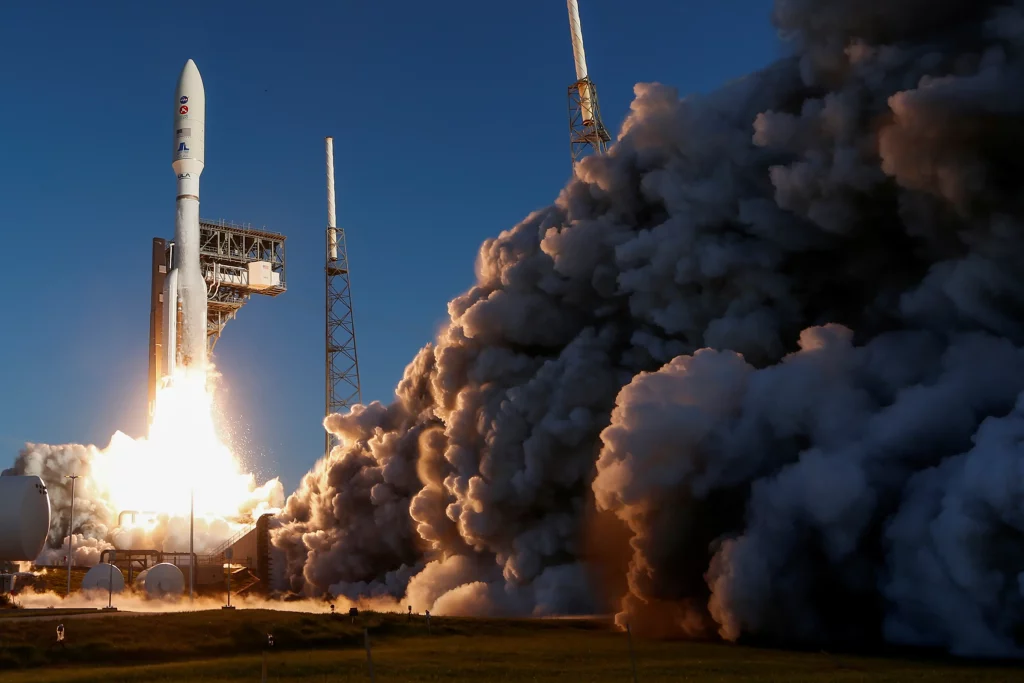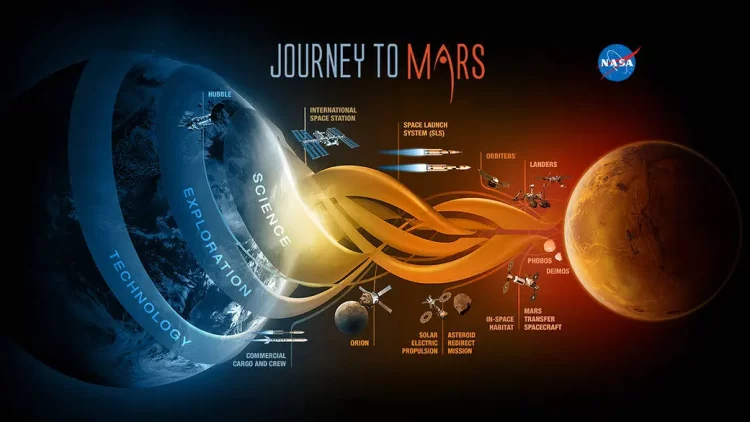A Story to Begin
In July 1969, millions of people around the world huddled around television sets to watch Neil Armstrong take humanity’s first steps on the Moon. The words “one small step for man, one giant leap for mankind” symbolized not just a technological triumph, but also a glimpse into a future where humans might live among the stars.
Half a century later, the dream of living on the Moon—or even Mars—has resurfaced with new intensity. Unlike the Cold War era, when space was a battleground for prestige, today’s conversation blends science, business, survival, and ethics. The race is no longer just about planting flags; it’s about building homes, societies, and economies beyond Earth.
Why Colonize Space? The Motivations
- Survival Insurance: Earth faces climate change, pandemics, and the possibility of catastrophic events. Colonies could serve as humanity’s backup plan.
- Scientific Curiosity: The Moon offers a stable platform for astronomy; Mars offers clues about the possibility of past or present extraterrestrial life.
- Economic Opportunity: From lunar helium-3 for fusion energy to Martian resources, off-world settlements are pitched as future hubs of prosperity.
- Human Aspiration: Exploration is part of our cultural DNA. Colonization symbolizes progress and imagination.
Moon or Mars? The Great Debate
The Case for the Moon
- Proximity: Only three days away, easier to supply and monitor.
- Resources: Water ice at the poles could be converted into drinking water, oxygen, and rocket fuel.
- Stepping Stone: A lunar base could serve as a testbed for technologies before venturing to Mars.
The Case for Mars
- Earth-Like Qualities: A 24.6-hour day, presence of atmosphere (though thin), and potential for terraforming.
- Long-Term Potential: Mars offers space for self-sustaining cities, unlike the Moon’s harsher environment.
- Symbolic Significance: Colonizing Mars represents humanity’s boldest leap.
Strategies for Settlement
1. Building Habitats
- Lunar Lava Tubes: Natural caves could shield colonists from radiation.
- Inflatable Habitats: Lightweight, expandable structures transported from Earth.
- 3D-Printed Buildings: Using Martian regolith or lunar soil to construct durable shelters.
2. Life Support Systems
- Closed-Loop Ecosystems: Recycling water, air, and waste to sustain colonies.
- Hydroponics and Vertical Farming: Growing food without soil, minimizing supply dependence on Earth.
- Nuclear and Solar Energy: Essential to power bases where sunlight is scarce.
3. Transportation and Logistics
- Reusable Rockets: SpaceX’s Starship aims to make interplanetary transport more affordable.
- Orbital Gateways: Space stations serving as refueling hubs and staging areas.
- Autonomous Robotics: Robots preparing infrastructure before humans arrive.

The Challenges
1. Human Health
- Radiation Exposure: Cosmic rays and solar storms pose life-threatening risks.
- Low Gravity: Mars has 38% of Earth’s gravity, while the Moon has 16%. Long-term effects on human physiology remain uncertain.
- Psychological Strain: Isolation, confinement, and distance from Earth may cause mental health challenges.
2. Technical and Economic Barriers
- Cost of sending one kilogram to Mars remains astronomical.
- Building sustainable colonies requires resources and innovations not yet available.
3. Environmental Risks
- Planetary Protection: Introducing Earth microbes could contaminate alien ecosystems.
- Space Debris: Increasing launches risk clogging orbital pathways.
Ethical Questions
Who Owns Space?
- The 1967 Outer Space Treaty states that no nation can claim celestial bodies, but commercial interests challenge this framework.
- If corporations mine lunar resources, who benefits—the company, the nation, or humanity?
Who Gets to Leave Earth?
- Will off-world colonies become havens for the wealthy, leaving the poor behind?
- Could colonies reproduce Earth’s inequalities, or even create a new form of “space aristocracy”?
Should We Colonize at All?
- Some argue humanity should fix Earth before expanding outward.
- Others claim space colonization is essential to solving Earth’s problems, providing new technologies and perspectives.
Case Studies and Current Initiatives
- NASA’s Artemis Program: Returning humans to the Moon, aiming to build a permanent lunar base by the 2030s.
- SpaceX Mars Vision: Elon Musk envisions a city of one million people on Mars by the end of the century.
- China’s Lunar Ambitions: Plans for a lunar research base in collaboration with Russia.
- ESA’s Moon Village Concept: A collaborative model involving multiple countries and private companies.
These initiatives highlight different approaches: national prestige, private enterprise, and international cooperation.
The Double-Edged Sword of Space Colonization
- Promise: A new frontier for science, survival, and imagination.
- Peril: Risk of exploitation, inequality, and ecological harm.
- Colonization is not inherently good or bad—it depends on how humanity chooses to pursue it.
Looking Forward
- International Collaboration: Just as the International Space Station became a symbol of peace, future settlements must be global projects.
- Ethical Governance: New treaties are needed to ensure fair resource distribution and environmental protection.
- Incremental Approach: Starting with lunar bases before attempting Mars may increase chances of success.
- Public Engagement: Space colonization must not remain the dream of billionaires—it should involve global dialogue.
Conclusion: Humanity’s Next Chapter
The journey from the Moon to Mars is not just about rockets and science—it is about identity, ethics, and imagination. Colonization forces us to confront fundamental questions: What does it mean to be human away from Earth? Can we build fairer societies in space than we have on Earth?
Whether settlements on the Moon or Mars succeed will depend less on technology and more on humanity’s wisdom. The stars may hold our future, but the values we bring with us will decide whether that future is one of hope or hubris.
As Armstrong’s words remind us, space colonization will be “a giant leap.” The question is: Will it be a leap forward for all humanity, or just for a privileged few?
















































